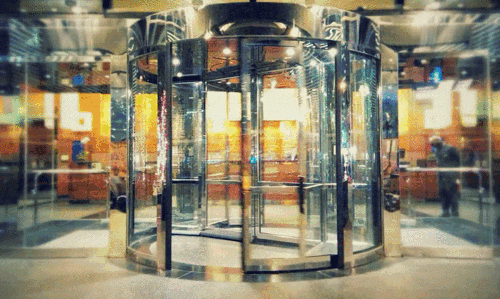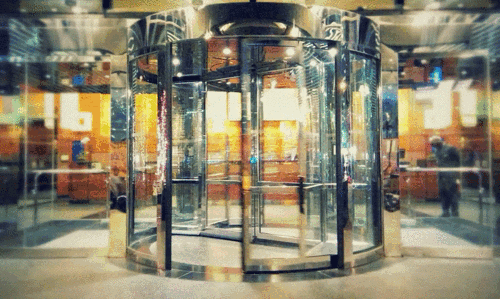
AI: OpenAI & Meta's revolving doors. RTZ #886
The Bigger Picture, Sunday October 26, 2025
Revolving doors are a metaphor beyond politics. It’s been a long time trait of Silicon Valley as well.
This summer saw Meta’s founder/CEO Mark Zuckerberg change the tenor of this AI Tech Wave with his extraordinary AI Talent raids from OpenAI, Apple and many other ‘Mag 7s’ (aka ‘MANGO’). And did it at compensation levels echoing top sports players. I wrote extensively about the impact and implications, both from a US and geopolitical China perspective.
But the Bigger Picture, less noticed, is that there’s been a sizable influx of ex-Meta people the other way too. Actually in the hundreds, into OpenAI at the senior levels, as it grew from 500ish folks to over 3,000 in just two years. That is impacting OpenAI founder/CEO Sam Altman’s ability to execute at the industry-leading pace I wrote about this week. And that is all something worth discussing this Sunday.
The Information lays out the broader details well in “OpenAI Readies Itself for Its Facebook Era”:
“The startup has imported a massive number of former Meta staff and has turned its attention to strategies favored by the older tech giant for boosting revenue and users.”
“This summer, Fidji Simo wasted no time addressing a concern among many at OpenAI.”
I’ve discussed her appointment by Sam to the role of ‘CEO of Applications’ at OpenAI. Which brings us to the changes underway today:
“Leading her first all-hands meeting as the startup’s new CEO of applications, she acknowledged that she and many others at OpenAI shared the same background: They’d previously worked at Meta Platforms. And then Simo, who’d risen to be head of Facebook over a decade at Meta, offered reassurance—she wasn’t interested in redoing her tenure at Meta and wanted to do things differently at OpenAI, according to two current employees at OpenAI. But her words didn’t put everyone in the crowd at ease.”
“In the three years since OpenAI introduced ChatGPT, the company has seen an influx of leadership and staff from Meta—even as Meta has poached liberally from OpenAI in recent months. Of the people who list OpenAI as their current employer on LinkedIn, approximately 630 previously worked for Meta, which represents about 20% of the roughly 3,000 total employees at OpenAI, according to an analysis by The Information. The contingent is so large that OpenAI’s Slack has a channel just for former Meta employees, according to one of the current employees.”
“Like Simo, many of these ex-Meta employees have major roles at OpenAI, including Vijaye Raji, chief technology officer of applications; Kate Rouch, chief marketing officer; and Joaquin Quiñonero Candela, head of recruiting.”
And the new arrivals are making their presence felt:
“As the Meta alums have arrived, it’s become evident that some of OpenAI’s latest strategies and initiatives do resemble the tactics Meta used to grow into a corporate juggernaut, according to conversations with seven current and former employees. OpenAI itself is keenly interested in growing into a similar gigantic form, an effort to satisfy investors and justify the half-a-trillion-dollar valuation it received a few months ago.”
With of course some impact on the existing OpenAI culture:
“This transition has unsettled employees across the startup as they adjust to the fact that the startup is increasingly outgrowing its origins as a pure research lab. Their worries range from the perceived shallowness and potential abuse of Sora, the company’s new video app, which doubles as a social network and has rocketed to the top of app store charts, to recent comments from OpenAI’s leaders that suggest a growing openness to advertising as a revenue stream.”
“And increasingly, staff have angsted over the prevalence of people at OpenAI who previously worked for Meta, and over whether OpenAI will become more like the social media and digital advertising giant. (An OpenAI spokesperson said the company hires for “diverse perspectives” and welcomes an “open debate.”)
“At the beginning of this year, as some employees grumbled about OpenAI’s massive hiring from Meta, an employee-led task force internally circulated a survey about OpenAI’s culture becoming too much like Meta’s, according to a current employee at OpenAI. The survey—which was later broadened to address OpenAI’s culture becoming too much like big tech in general—asked staffers whether they had previously worked in big tech, as well as about the positive and negative aspects of the culture at their previous workplace and whether any of those aspects were being recreated at OpenAI.”
We’ve seen these kinds of transitions before, with Facebook itself seeing changes as it recruiting top talent from companies like Google and others in its early days. Silicon Valley in that way is a relatively close-knit, and closed-loop system.
“Even if a startup as big as OpenAI wanted to avoid hiring alums of another large technology company like Meta, which has roughly 75,000 employees, it would be nearly impossible for it to do so. There are only so many people in the industry with the technical and business experience to make products at the scale of a Facebook or an Instagram.”
Old ways are slowly adopting to the new:
“At the same time, some of OpenAI’s employees are particularly wary of Meta, given the social media giant’s struggles with content moderation, user privacy and youth safety for more than a decade.”
“And that wariness can sometimes extend to other Silicon Valley influences in addition to Meta.”
With echoes of early Facebook goals being transplanted to OpenAI:
“In 2024, a long memo from Kevin Weil, a former Meta executive who was then serving as chief product officer, caused a bit of a stir shortly after he joined. In the document, Weil, who was known at Meta for his lengthy missives, detailed his goal of getting ChatGPT to a billion weekly active users and having it pass the “toothbrush test,” a term former Google CEO Larry Page coined to refer to products consumers use daily.”
“Some executives, including Mira Murati, who was then OpenAI’s chief technology officer, chafed at Weil’s memo and felt the naked emphasis on simply increasing users—rather than trying to build a quality product that could attract users—was the wrong strategy, according to a former OpenAI employee.”
Mira Murati of course went on to start her own mega-Unicorn, Thinking Machines Lab, which got poached recently by Meta itself.
Some signs of the current changes were evident in OpenAI’s release of its recent viral Sora 2 hit:
“One of the recent flashpoints at OpenAI was the release of Sora last month.”
“In companywide meetings and messages on Slack, some employees have expressed doubt that the app is the right direction for OpenAI and have raised concerns that OpenAI is unequipped for the problems plaguing other social media platforms, according to two current employees. Some have been particularly anxious about its ability to moderate content including comments and messages.”
“Last month, OpenAI CEO Sam Altman sought to assuage those anxieties. In a message on Slack, Altman acknowledged that Sora doesn’t necessarily further OpenAI’s goal of superintelligence—AI that can exceed the intellectual capacity of humans—according to a current employee. But even in a future with superintelligence, he added, people will still want fun, lighthearted content.”
The full piece has a table worth perusing of the dozen or so folks from Meta that now play major roles at OpenAI.
And it’s showing up in both directions, at OpenAI and back at Meta itself:
“That reasoning closely resembles Meta’s recruiting pitch to AI researchers. In recent months, Meta has discussed with recruits the idea that if superintelligence someday handles most jobs in the economy, then people will still need to do something with their new leisure time, and Meta can provide that entertainment. Last month, days before Sora’s debut, Meta added Vibes, a Sora-like feed of short AI-generated videos within its Meta AI chatbot app.”
And of course a critical shift in OpenAI’s mix of business models:
“OpenAI’s employees have also worried that their employer is softening its attitude toward advertising—the business that turned Meta into a juggernaut while also fomenting concerns about privacy—according to three current employees.”
“As recently as last May, Altman said ads would be a “last resort” and called them “uniquely unsettling.” But he seems to have changed his tune.”
“I find ads somewhat distasteful but not a nonstarter,” Altman said in a podcast this month. “There’s some ads that I like. One thing I’d give Meta a lot of credit for is, Instagram ads are a net value add to me. I like Instagram ads. It’s like, I didn’t know I want this thing.”
“Similarly, in a companywide meeting in recent weeks, Simo said OpenAI was looking at advertising and how it could benefit users, according to two current employees.”
“In focus groups with users, OpenAI has found some users assume that ChatGPT’s answers are ranked based on sponsorship and that OpenAI already sells ads, according to a current employee. Some employees have used these findings to advocate for advertising.”
Thus the full-scale transformation of OpenAI is underway, absorbing and evolving its traits as a faster and larger industry leading organism.
And that is the Bigger Picture worth grokking about this ongoing AI Tech Wave. Stay tuned.
(NOTE: The discussions here are for information purposes only, and not meant as investment advice at any time. Thanks for joining us here)













